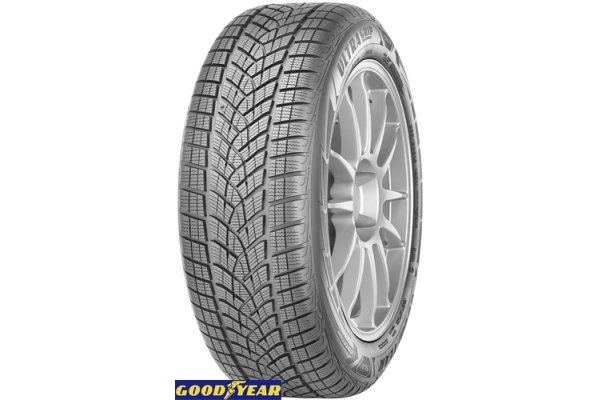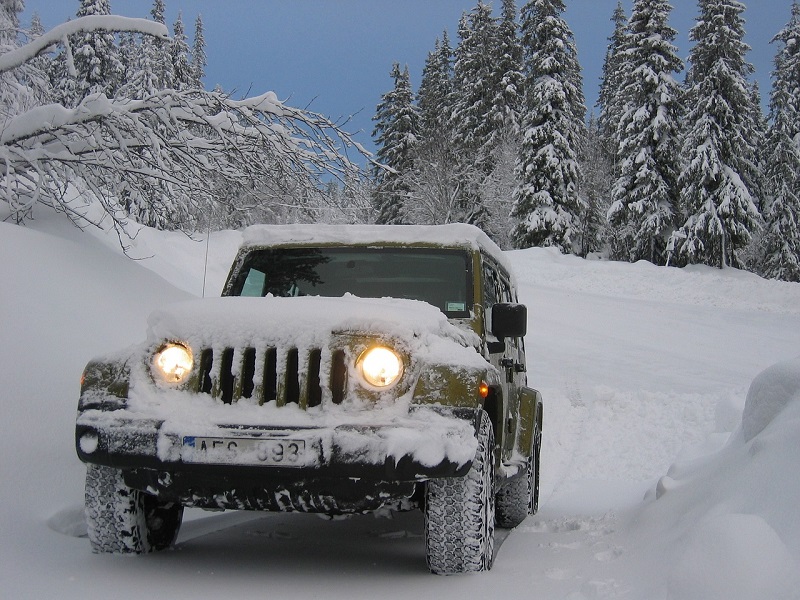Get Winter Tires for Better Winter Driving
If you are not a big fan of driving during winter or you feel anxious every time there is news of a big snowstorm coming, well, you are definitely not alone. The first snowfall is known to cause many accidents every winter. Many drivers often forget what it really takes to navigate snow-covered and slippery roads in the safest way possible. Various driving skills are required to keep yourself protected from accidents during winter months. Good thing that winter tires are here to the rescue!
Those who are lucky enough to drive an all-wheel or four-wheel drive, chances are your confidence levels are much better than those who drive regular front-wheel drive cars. But, even these vehicles are not invincible.
If you don’t like to drive in the snow or you are a commuter, winter tires are the answer to all your worries. But before you go out to buy yours, there are several helpful pieces of information you need to know to understand the benefits and features of these tires especially made for winter.
Table of Contents
What Makes Winter Tires Different from All-Season Tires?
The all-season tires are those standard equipment used on cars when they are manufactured. The tires offer several benefits including decent tread life and comfortable and quiet ride. They also give year-round performance for anything that Mother Nature may send your way. These tires also work well in climates that don’t really get a lot of snowfalls every year. Keeping all-season tires in great shape is important for you and your family’s safety.

What makes winter tires different from all-season tires, then? As mentioned earlier, there are many challenges associated with winter driving. Heavy snowfall, drifting and blowing snow, freezing rain, and black ice can change the roads in the blink of an eye. Winter tires have been designed with exceptional features that let them perform so much better compared to all-season tires.
These are a few things that set these tires apart from the rest
Provide excellent traction
Various tread designs let these tires push snow outward to prevent buildup of snow. Although there are a lot of people who believe four-wheel or all-wheel drive is a must to make it through winter months, winter tires can hold their own and are also a more affordable alternative.
Offer more flexibility
When the temperatures are extremely cold, the tread rubber on the all-season tires can harden, thus reducing their ability of gripping the road. The winter tires are also more flexible that allow them beter grip.
Decrease hydroplaning
When you speak of hydroplaning, this is a function of speed, standing water, and insufficient tire tread. Hydroplaning takes place when water on roads makes your tires lose contact with the road.

Offer better braking and steering
The softness and flexibility of winter tires ensure better grip that can prevent tires from sliding over slippery surfaces.
When to Use Winter Tires?
Winter tires are best to put during mid-November and must be removed during early April or mid-March. Winter tires are not made all year long. Depending on your chosen tires, these might be available within a limited time only.
How Long Can Winter Tires Last
Americans, on average, drive 13,476 miles annually, which is equivalent to 1,123 miles monthly. If you are using your winter tires four months every year, this means that a 40,000-mile tire can last for about 8 to 9 years. Take note that winter tires can eliminate the wear and tear off the all-season tires, making them last much longer.
How Much are Winter Tires?
Tires are crucial parts of your car that is usually neglected or taken for granted until a problem arises. Shopping for tires is never fun, not to mention that they can also get pricey. So, the mere thought of getting additional set of tires might seem overwhelming.
But, you can be sure that the moment you use winter tires on your vehicle, you will surely ask yourself why you failed to do it sooner. Quality sets of winter tires could easily cost you as much as $1,000. The price can go higher if you are planning to buy specific rims for the tires. Take note that the rims are one-time purchase that can last your car’s life.
Where to Store Winter Tires
You need to remove winter tires when springtime comes. Dry pavement and warmer temperatures can make them wear down much faster. You need to store these tires in a dry and cool place such as a basement or climate-controlled facility. Keeping them in the usual shed or garage might cause damages due to high humidity and extreme heat. You can use rack systems if your floor space is a bit limited. There are also systems that you can mount to the wall. Finally, you can check with your car dealership or mechanic to inquire if your area got some tire storage facilities.
Below are several storage tips you need to remember:
- Don’t forget to wash the tires when the winter season is over.
- You can stack or store tires upright. Avoid stacking tires too high for safety.
- Don’t hang the tires on hook if these are not mounted on permanent rims.
- Never store the tires near a radiator, water heater, or furnace.
- Store the tires in airtight bags as this can keep the oils in the rubber.
Can You Use Winter Tires on SUVs, Trucks, and All-Wheel or Four-Wheel Drive Cars?
Yes, all-wheel and four-wheel drive systems can help vehicles hit the road. The systems don’t really help with steering or braking. The braking distance for those vehicles that use winter tires is much better compared to vehicles using all-season tires.
Safe Winter Driving is in Your Hands
At the end of the day, careful and slow driving is always the best thing you can do during wintry conditions. Among the best actions that you can take as a driver to maximize braking, grip and traction performance during winter is to install winter tires especially made for winter driving.

